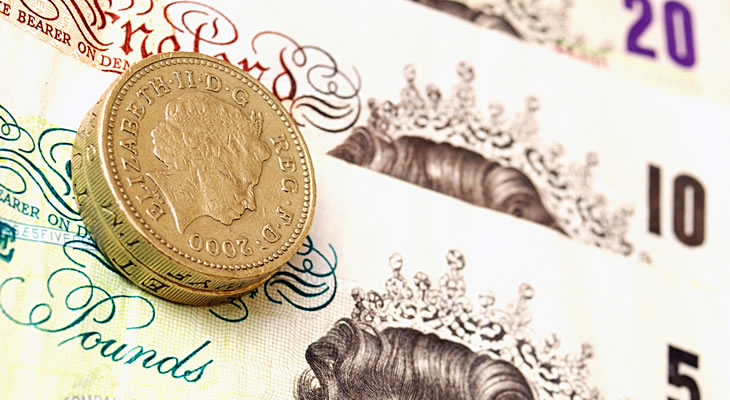The Pound to Euro exchange rate has improved noticeably on the afternoon of 6th April, with GBP/EUR rising by 0.4%.
This makes one Pound worth around €1.1480, which is close to the best exchange rate in a fortnight for the pairing.
The Euro to Pound deterioration is primarily because of concerns that a US-China trade war could end up harming the Eurozone.
(Last updated 6th April, 2018)
The Pound to Euro exchange rate has remained unfavourable on 5th April, following the release of broadly supportive Eurozone retail sales data.
The readings for February have shown 0.1% month-on-month growth, but the annual figure has shifted from 2.3% to 1.8%.
While a year-on-year slowdown is not the desired outcome, traders concluded that this was still supportive Eurozone news.
(First published 5th April, 2018)
GBP/EUR Outlook: Chance of Pound Appreciation on Higher Average Earnings
The Pound to Euro exchange rate has recently declined, following the news that the UK services PMI for March has seen a greater than expected slowdown.
This reading followed a similarly disappointing construction sector printing for the same month, which showed an unexpected drop into contraction.
These data releases have lowered confidence among Pound traders, but the GBP/EUR exchange rate could recover in the weeks ahead when UK jobs stats come out.
The main jobs figures, covering changes to unemployment and the pace of wage growth, will be out on 17th April.
At the time of writing, estimates were for no change in the jobless rate but a rise in average earnings excluding bonuses.
Higher earnings and lower unemployment could boost the Pound to Euro exchange rate, as such results will raise hopes for a Bank of England (BoE) interest rate hike.
Risk of Pound to Euro Exchange Rate Volatility if UK Inflation Rises as Forecast
While there is a chance of a Pound advance when the UK jobs market data is released on 17th April, further ahead the GBP/EUR rate could drop when inflation stats come out.
The figures scheduled for release on 18th April are tipped to show a year-on-year rise in inflation growth during March, which may be seen as a step back.
GBP traders have previously looked for signs that earnings growth will overtake inflation, signifying a stronger UK economy due to lower unemployment.
If inflation picks up again and wages fail to rise in tandem, the GBP/EUR exchange rate could see a sharp decline in the weeks to come.
Will Euro to Pound (EUR/GBP) Exchange Rate Rise on German Industrial Strength?
There is a possibility for a Euro to Pound exchange rate rise before the weekend, when German industrial production and construction stats are released on 6th April.
The German data is tipped to show growth in industrial production levels during February, as well as a pick-up in construction sector activity.
Germany has a prominent focus on manufacturing and industrial activities and is the largest single Eurozone economy, so such results could raise Euro trader confidence.
Are Further Euro to Pound (EUR/GBP) Exchange Rate Gains ahead on German Trade Surplus Expansion?
Another Germany-linked boost to the Euro could be on the horizon for the coming week, when the nation’s trade balance reading for February is announced on 9th April.
Germany has long maintained an enviably large trading surplus, so if the current €17.4bn reading shows an expansion to €26.8bn then the Euro could rally.
Given Germany’s importance to the Eurozone, a rise in its trade surplus could trigger wider optimism about the European Central Bank (ECB) tightening monetary policy.


Comments are closed.